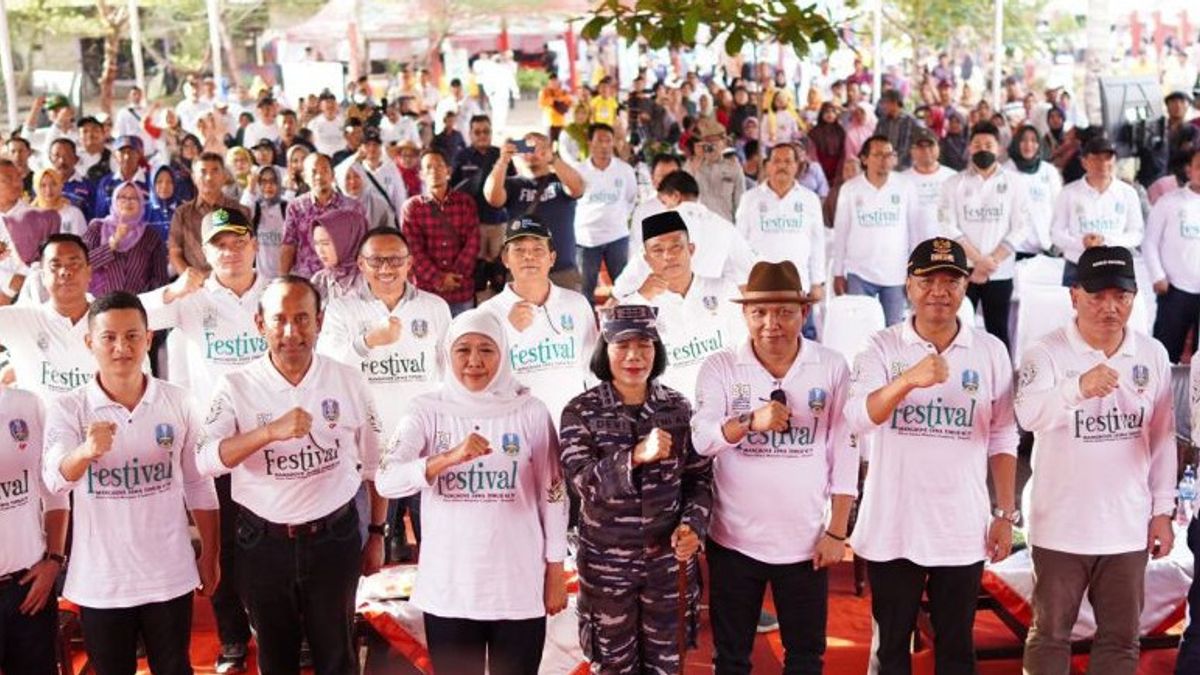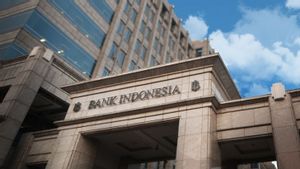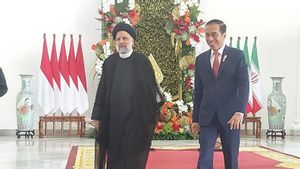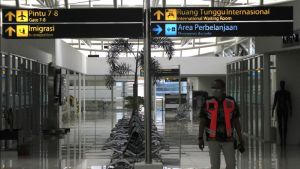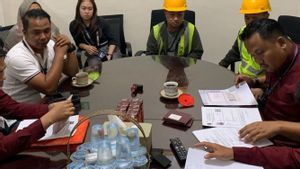JAKARTA - Member of the National Energy Council (DEN) Satya Widya Yudha said that the cultivation of mangrove or mangrove plants is one of the efforts to achieve the target of neutral carbon or net zero emissions (NZE) by 2060 or sooner.
"In addition to building clean energy, it is necessary to support efforts to absorb CO2 that pollutes the air by maximizing mangrove planting," he said while giving a speech at the 4th East Java Mangrove Festival at Cengkrong Beach, Karanggandu Village, Watulimo District, Trenggalek Regency, East Java, quoted from Antara, Monday, May 29.
According to him, the East Java Mangrove Festival is in line with President Joko Widodo's speech at COP 26, Glasgow, England, which said that Indonesia would reach NZE by 2060 or sooner.
The East Java Mangrove Festival in Trenggalek was opened by the Governor of East Java Khofifah Indar Parawansa accompanied by Trenggalek Regent Mochamad Nur Arifin.
The activity began with the release of shrimp, fish, perkutut, and pleci birds and continued by the river to monitor mangrove vegetation by crossing the confused bridge.
After that, Khofifah, Nur Arifin, and Satya planted black mangroves and pimada at Cengkrong Beach.
Mangrove forests are known to play an important role in efforts to deal with global climate change because they are able to store up to five times the C02 compared to tropical forests on land.
Meanwhile, with a mangrove forest area of three million hectares, it is estimated that it will be able to absorb carbon emissions of around 950 tons. The absorbed carbon can be an addition to state revenue through carbon trading.
In addition, mangroves also have many benefits for the ecosystem, including protecting beaches from abrasion, becoming a place for fish and crabs, fertilizing land, ecotourism, and overcoming flooding in coastal areas.
另请阅读:
Data from the Central Statistics Agency noted that as of December 2021, the mangrove ecosystem area in Indonesia reached 3.63 million ha or 20.37 percent of the world's total, which makes Indonesia the largest country with mangrove forests in the world.
Satya added that in the revision of the National Energy Policy (KEN), the development of clean energy must be associated with a factor that affects the clean environment, namely in an effort to neutralize the influence of CO2 carbon emissions in the air.
"These methods are often called NBS or nature base solutions, the way is to plant trees on land, grow mangrove plants on beaches, and protect coral reefs in the sea," he said.
According to him, a clean and healthy ecosystem will affect human life to stay healthy and clean.
The English, Chinese, Japanese, Arabic, and French versions are automatically generated by the AI. So there may still be inaccuracies in translating, please always see Indonesian as our main language. (system supported by DigitalSiber.id)
